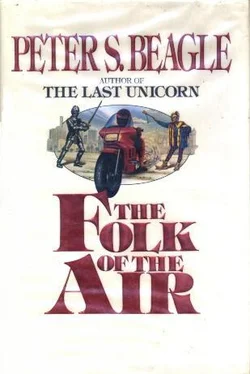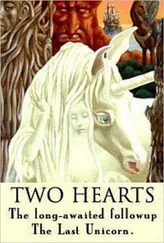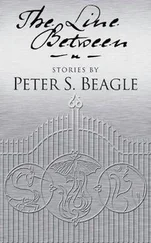“On our right,” he said, “of course, the elephants. This pair of old scroungers, Winston and Daisy, are Indian elephants—born in Sri Lanka, actually—and the big fellow in the next yard is Mr. Ngugi, and he’s from Kenya in East Africa.” Winston and Daisy, who had been circus performers, went into their routine on cue, twining their trunks and rearing, yearning with perfect comic precision toward a world made up entirely of cooing, snack-flinging suckers. But Mr. Ngugi had ragged ears and a broken tusk, and Farrell cringed before the darkly brilliant squint six times a day as he slid by in his green and baby-blue train, repeating in the same words the joke about elephants’ memories. He made the joke this time, too; but an unaccountable impulse led him to go on, not into his usual thirty-three-second closing speech as the alligator train neared its terminus, but straight into the first lines of his favorite D. H. Lawrence poem:
“ The elephant, the huge old beast ,
is slow to mate;
he finds a female, they show no haste ,
they wait
for the sympathy in their vast, shy hearts
slowly, slowly to rouse …“
He said the lines loudly enough for Mr. Ngugi to hear, and never noticed the sad-faced bald man who flushed and began very vigorously to button up his daughter’s jacket, nor the old woman who yanked her two small grandchildren to their feet, towed them to the door, and practically slung them off the train, which was still moving. He halted it between the proper yellow lines, trying to recall the part about the great beasts mating in secret, hiding their fire. None of his passengers looked at him as they scrambled down. Farrell sang the last verse softly into the microphone.
“ They do not snatch, they do not tear;
their massive blood
moves as the moon-tides, near, more near ,
till they touch in flood .“
Pleased with himself, he leaned on his elbow in the round window that was the alligator’s left eye and waved to the young Chicano peanut vendor across the path. The peanut vendor grinned at him, shaking his head and drawing a forefinger cheerfully across his throat. “Abandon ship, chulo ,” he called. “Better tell me now where you want your stuff shipped on to.”
“Jaime,” Farrell said, “you really must try to remember about not being in Yuba City anymore. There wasn’t so much as a phooey in that poem—it was educational and scientific in nature, and all those people got college credit just for listening to it. So did you, of course. Trade the experience in at any night school in the country.”
But the peanut vendor shook his head again. “I didn’t hear three words of it, didn’t even know it was a poem. All I know is you weren’t saying those good lines they wrote down for you to say. I hear you doing that thing every day, over and over, you think I can’t tell when the beat changes?” Abruptly he scaled a bag of peanuts sidearm through the window into Farrell’s lap. “You were doing it different,” Jaime said, “you think they couldn’t tell? Making stuff up on them, more than likely. They hate that, man. They paid for exactly the same show everyone else gets. So not only are you some kind of elephant pervert, you did them out of money. Oh, there will be cards and letters. There will be damn singing telegrams about you, man.”
“Next round, The Bastard King of England ,” Farrell said. He stood up, stuffing the peanuts into a pocket of his forestgreen jumpsuit, which had been tailored for a larger man and hung on him like a parachute snagged on tree branches. He turned to check the seats for knife slashes, forgotten dolls, bombs, and fallen change. From the last seat in the rear row, with the Petting Zoo reflected in the window behind her, the dog Briseis looked at him.
After a long time, and from a long distance, Farrell heard himself say, “Get down, Briseis. They don’t let dogs on the zoo train.” The rear door’s open, she must have gotten on that way. I just didn’t see her . He started toward her, but Briseis growled once, so quietly that Farrell froze between steps, suddenly very uncertain of his ability to identify dogs. She stared boldly into his eyes, as he had never known her to do, then leaped to the floor and out of the train in two elegant bounds that were nothing like the movements of Sia’s clumping, apologetic old companion. Turning to look back at Farrell, she growled again, and this time it was unquestionably a command. Farrell was never mistaken about commands.
“Wal, Ah swan, Ah reckon the critter wants me to follow her,” he said aloud, just to keep the whole affair on the level of a Lassie movie as long as possible. Briseis was loping away, back past the elephants, then slanting off in the direction of the employees’ rest-room. She neither slowed for Farrell, nor looked around to be sure of him. He trailed after her, trying to keep her in sight without really running, feeling like the White Rabbit as he checked his watch to see that he had almost an hour of liberty before the alligator train’s next appointed round. His supervisor, who mistrusted him, called questioningly as he hurried by. Farrell waved, earnestly yelled back, “Till they touch in flood,” and kept moving. I’m late, I’m late, for a very important date, and I am not dressed for it, whatever it is .
Briseis surprised him greatly by leading him on his favorite path, down behind the bear cages. Unpaved, too narrow for trucks or the alligator train, it was used more as a shortcut by the zoo staff than by visitors. Farrell liked it for its rough coolness and silence, and for the smell of the bears in the shadows. Briseis was waiting for him at a bend where the path broadened briefly to make room for a low stone fountain, which had become a birdbath by default long ago. The tiny silver hiccup of the water was the only sound Farrell could hear, except for Briseis’ deep panting.
Ben’s own breath was so shallow as to be inaudible in the clearing. He was hunched over the fountain, propping himself with his hands in the concrete bowl, his head sunken and turned away, like an animal too sick to drink. Farrell recognized his suit first—the shabby gray corduroy that Ben treasured obstinately for the elbow-patched stereotype it was and wore to work whenever Sia got up too late to protest. Except for the water-soaked cuffs, the coat was unstained, and the rucked-up shirt, missing three buttons, still showed the dry-cleaner’s creases. But what was inside the familiar clothes was not Farrell’s friend. He knew that before he saw the face, even before the alien flesh, rigid beyond bearing, howled under his hand. He said, “Ben,” to it anyway, because he could not make himself call it by the other name.
The stranger replied in a voice that was higher and sharper than Ben’s voice, speaking words like the rattling of oarlocks and anchor chains. It was the voice Farrell had heard outside Sia’s door on the night when Ben came home, the same voice that had chanted Norse battle songs or nursery rhymes while she and Nicholas confronted each other across their ravaged battlefield, Aiffe. But then Ben— Egil, Egil Eyvindsson, say it in your head at least —had been hurt, helpless, unable to stand, or to do much else but glare through Ben’s eyes like a madman through steel mesh, monstrously afraid. Now he was facing Farrell with two feet of bird-limed concrete and rusty water between them, testing his strength against the boundaries of this body, making it move. The little, dim scar was stretched dark, and a grin had begun to dance on the clenched mouth, fire along a knife blade. Farrell was afraid for his life then, but he kept his hand on the stranger’s arm, for no reason he could ever name, and felt the creature trembling in slow, aching, hideous waves. He held on tight, letting the terrible shivering pass into him.
Читать дальше












